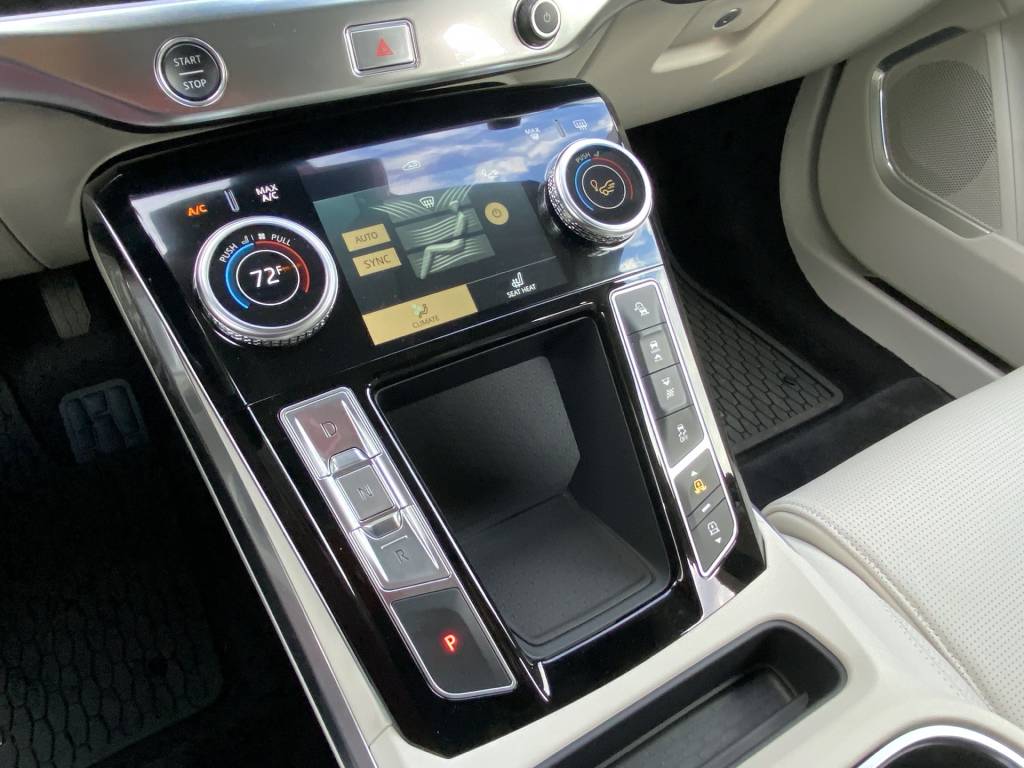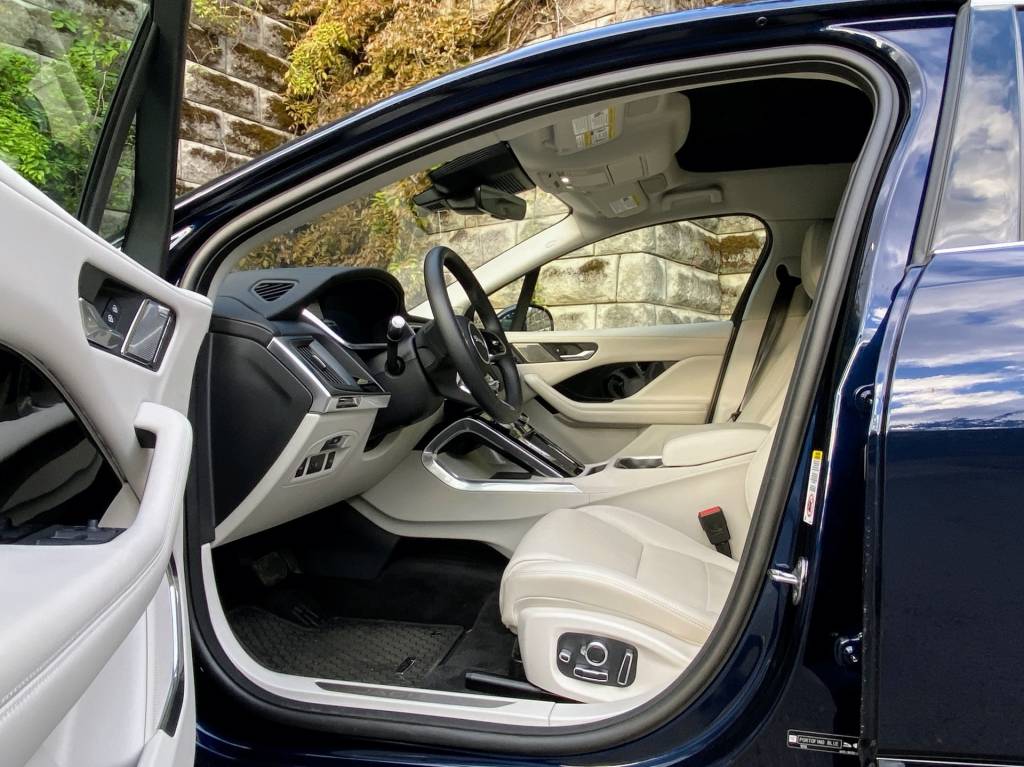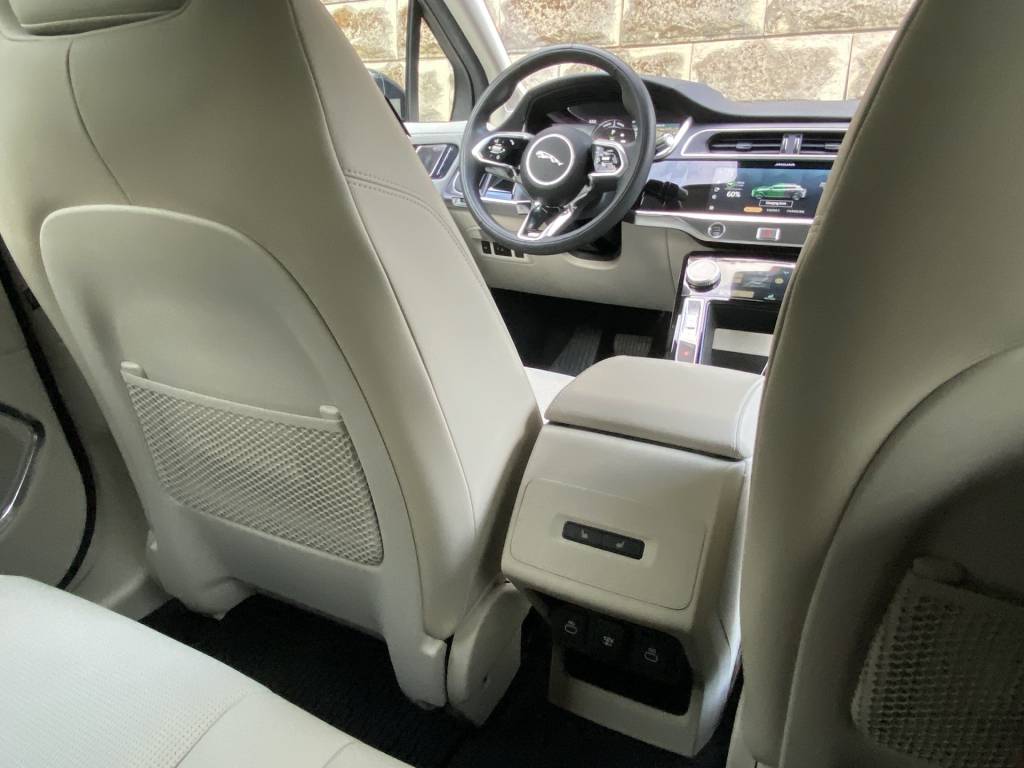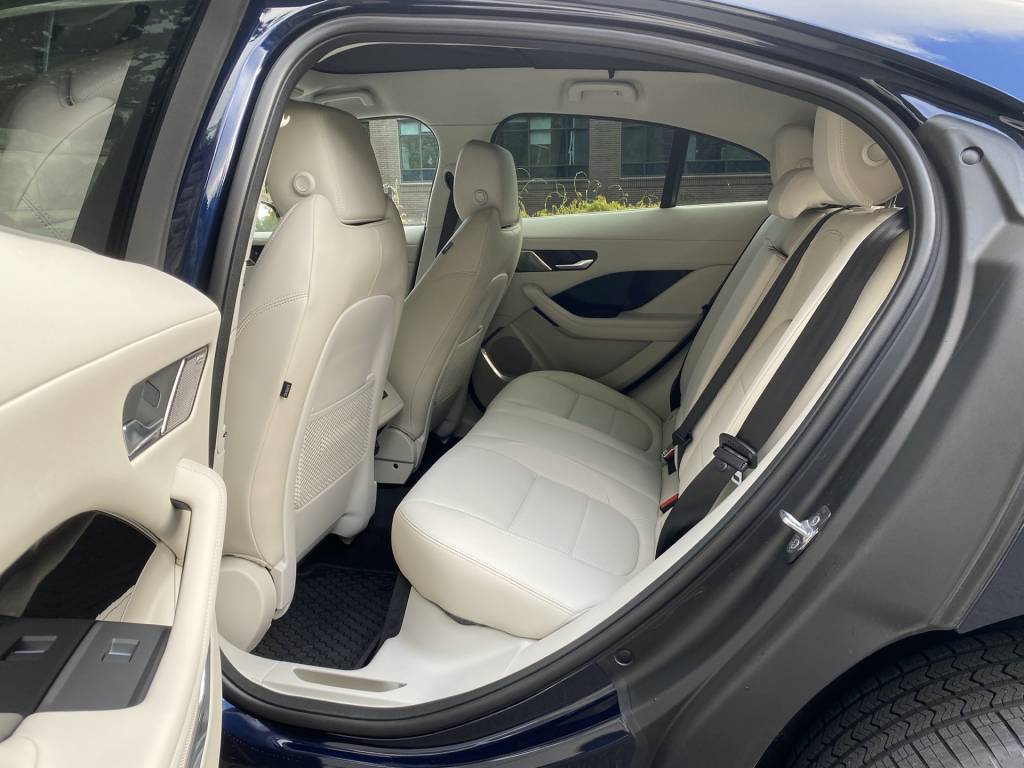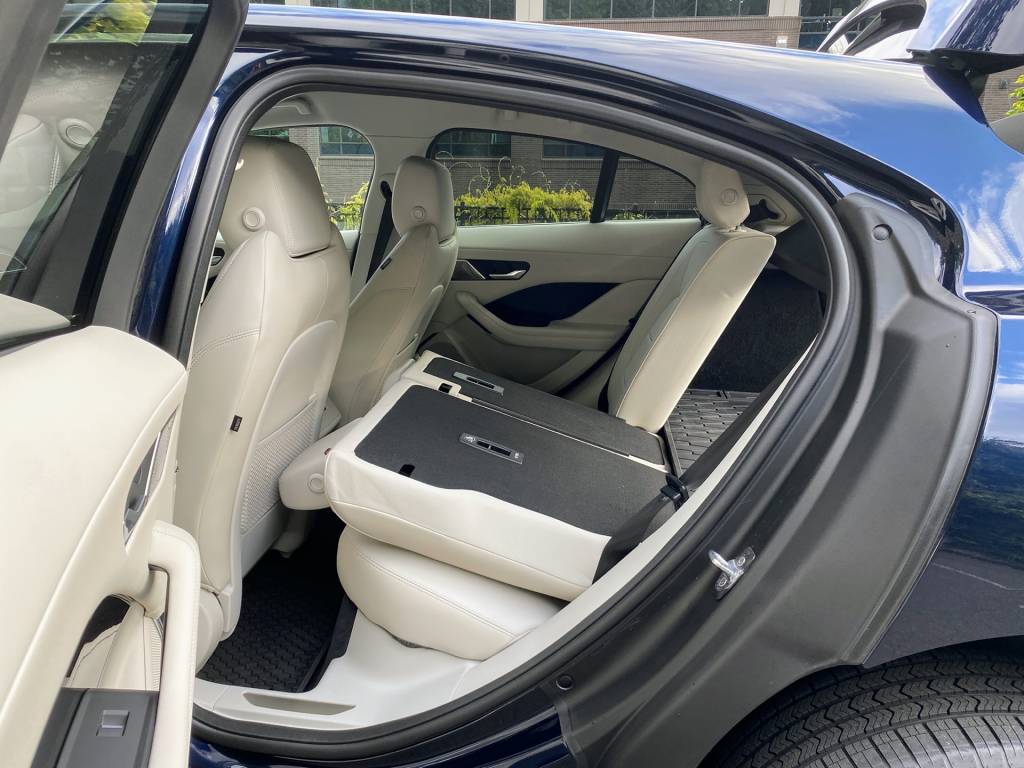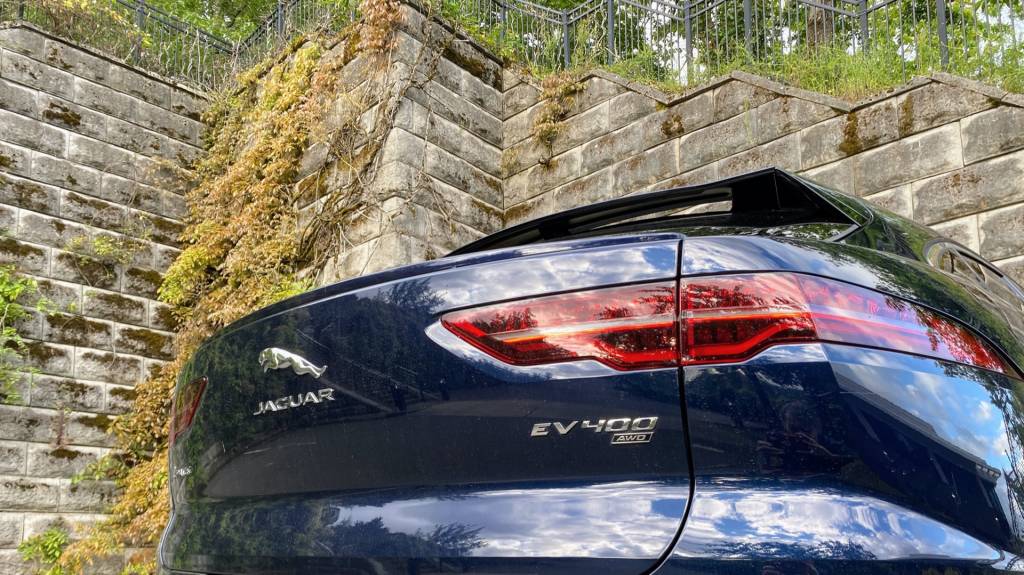The Jaguar I-Pace was the very first entry of what now feels in many respects like the core of the EV market: compact fully electric crossovers with roomy interiors, leading-edge cabin tech, and a luxury car price tag.
Jaguar delivered its first U.S. I-Pace in October 2018. That’s before the original Audi E-Tron SUV, a year and a half before the start of Tesla Model Y deliveries, and long before the Audi Q4 E-Tron, Mercedes-Benz EQB, Genesis GV60, and Lexus RZ 450e arrived from luxury brands, and buyers lined up for the head-turning Ford Mustang Mach-E, Hyundai Ioniq 5, and Kia EV6.
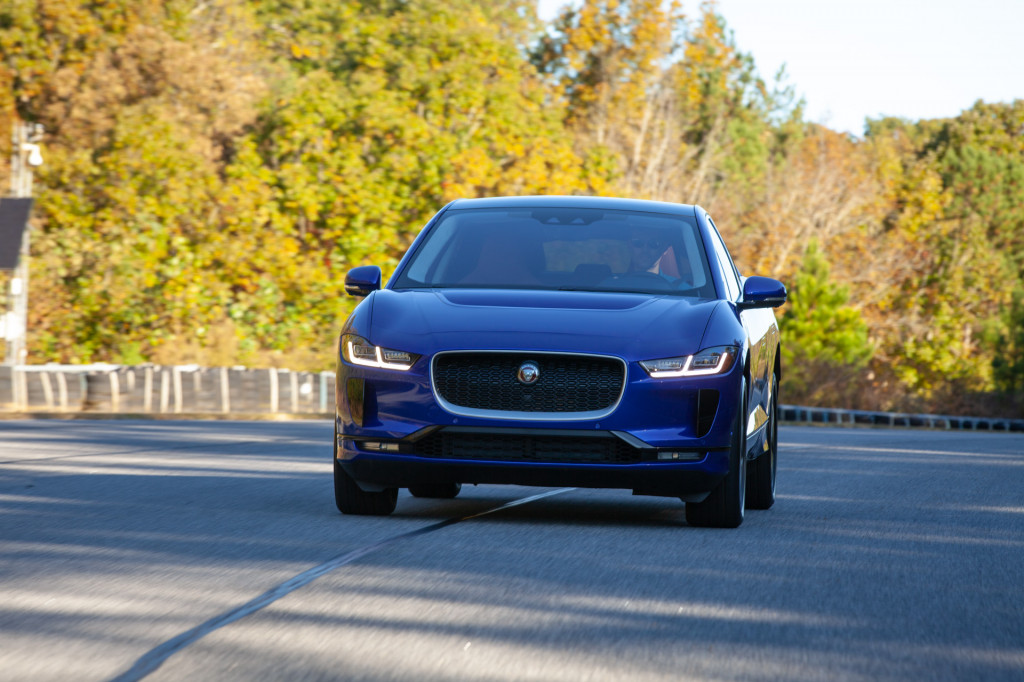
2019 Jaguar I-Pace
Why earlier I-Paces were a tough sell
On arrival, the I-Pace was a great-looking, leading-edge luxury EV, but it made some awful first-date impressions. Half-baked software details were a big part of it and kept this EV from measuring up to expectations. Its laggy interface, for instance, could take whole minutes to start fully, and then its responses to the virtual buttons—even for climate control—left us exasperated. Minor, but hard to live with.
And that’s not counting what we found to be the deal-breaker: Under multiple situations and with multiple editors behind the wheel, the I-Pace’s readouts on how much charge it had remaining were anything but even-keeled.
The I-Pace might have had enough range, at an official 234 EPA-rated miles for 2019, but as we quickly found out in several driving experiences, at launch it didn’t quite have all the tools it needed to make the best in the real world of all 90 kwh of the expensive LG Chem pouch cells it packed in.
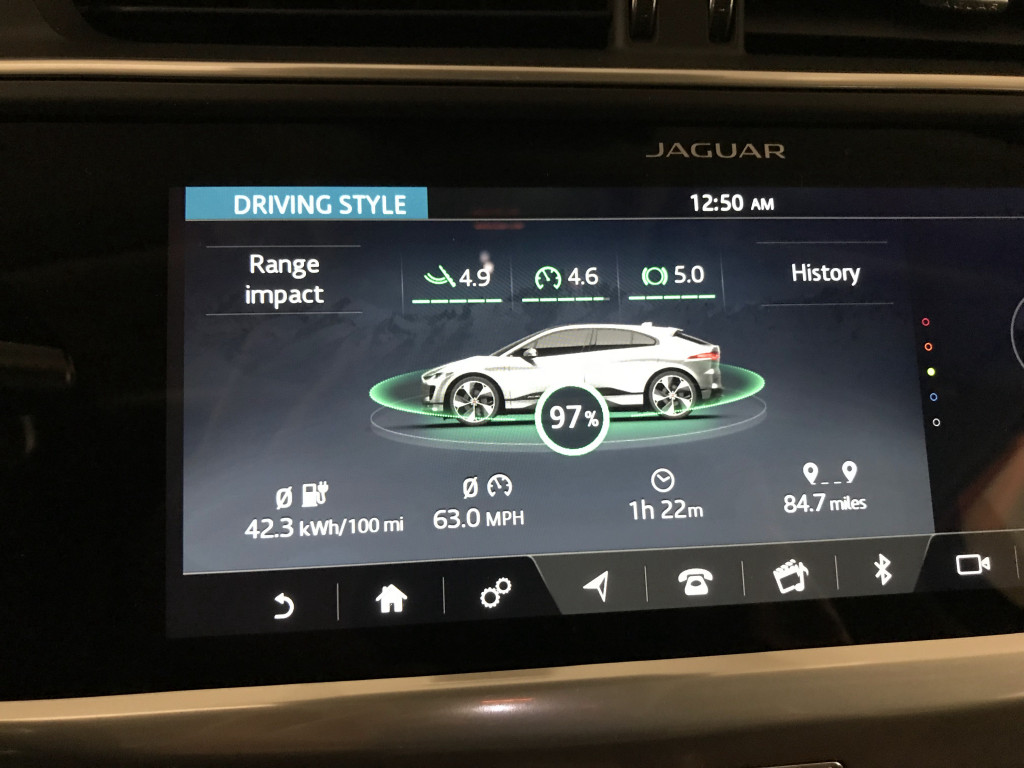
2019 Jaguar I-Pace Chicago to Milwaukee road test
Jaguar had a range issue with the early I-Pace and no, I’m not talking about the range meter. Range estimates have always represented an educated guess, and I know better not to make any firm plans based on them—especially in demonstration cars that aren’t used to my driving patterns or might have been shipped from another region with a completely different climate. But over several different I-Paces we observed the same kind of alarming battery information, which amounted to sudden, uneven drops in the indicated percentage state of charge while driving at steady speeds or nearly so.
We dug into this over many months with Jaguar Land Rover at the time, and the best explanation was that the I-Pace has a battery warming system and for whatever reason, in light highway conditions, it would sometimes cycle on for best performance. That said, it was still hard to understand how this made the state of charge move at such an uneven rate.
Jaguar claimed to have fixed this early on, with a deeper level of improvements due for 2021. But then the I-Pace skipped 2021 in the U.S. altogether. There were no test cars showing off this progress in I-Pace for a long time.
And then some months ago a 2022 I-Pace rolled into my driveway.
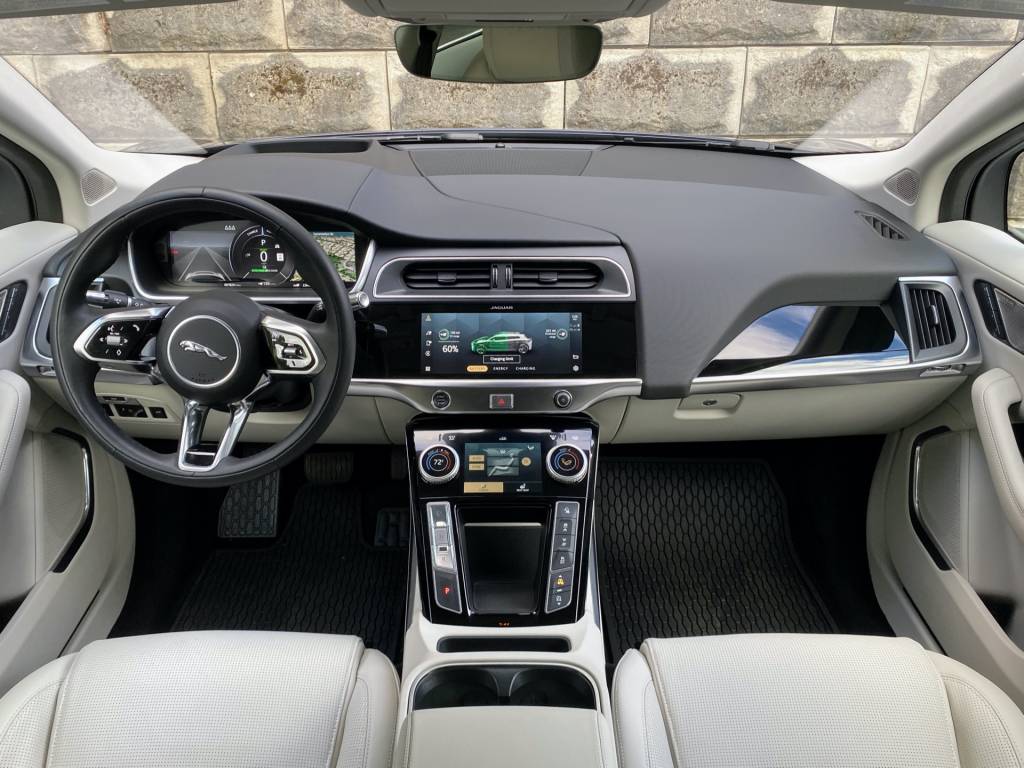
2022 Jaguar I-Pace
2022 Jaguar I-Pace
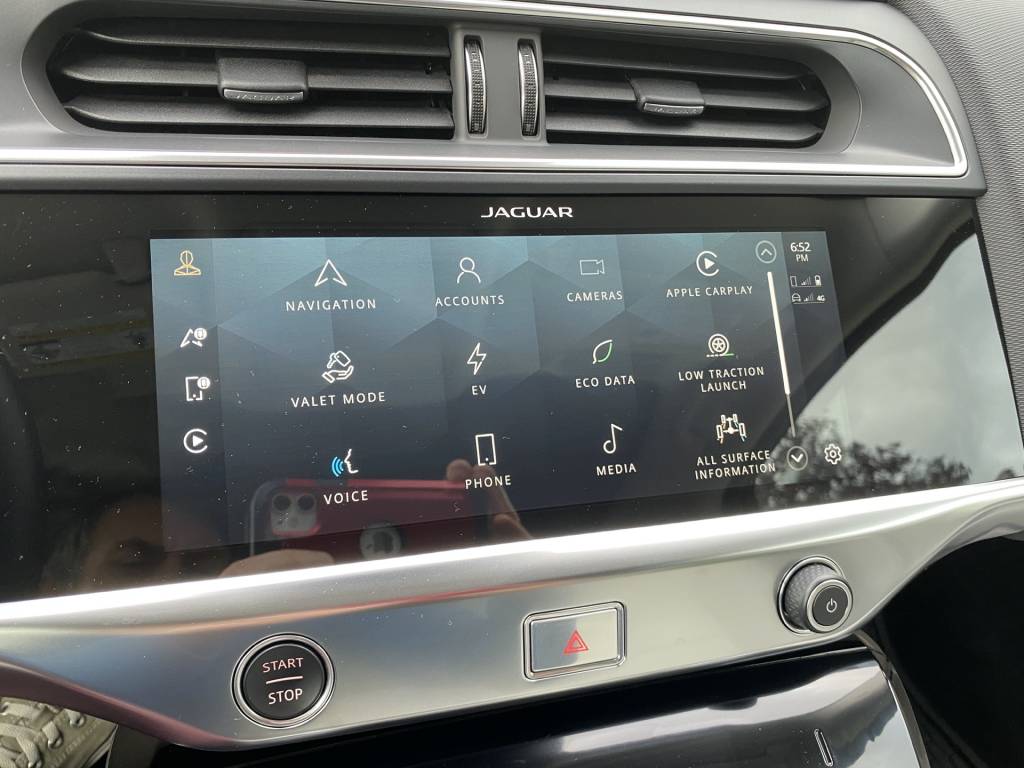
2022 Jaguar I-Pace
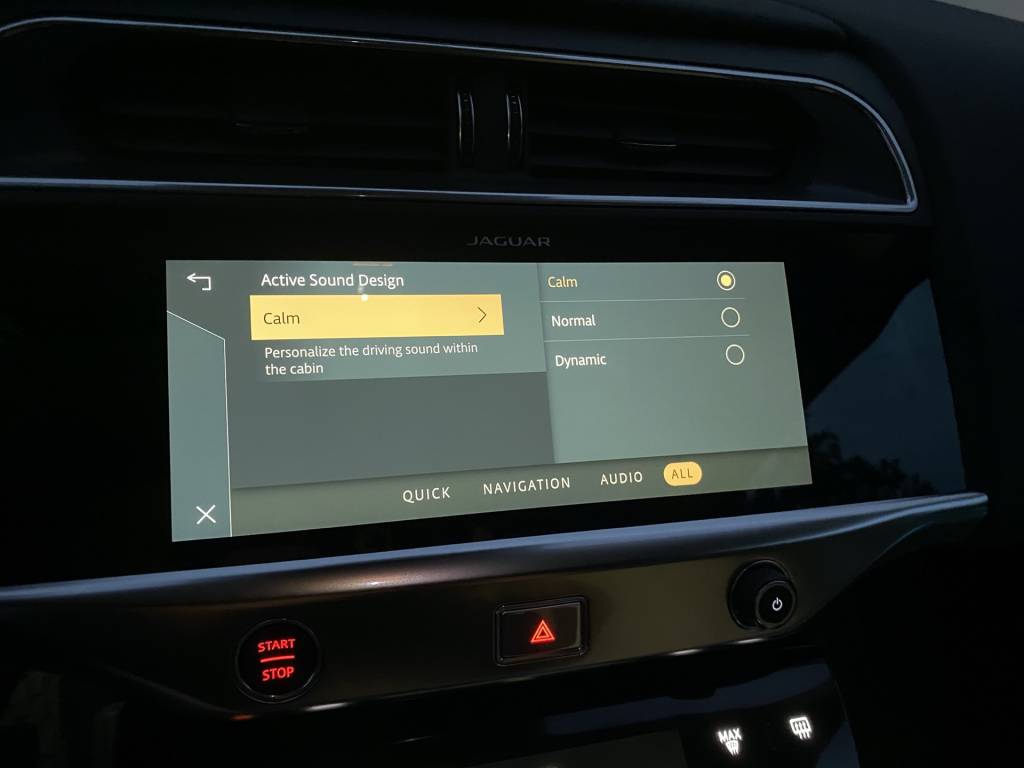
2022 Jaguar I-Pace
I-Pace interface is much-improved
In real-world use, the I-Pace used to be a disappointment; but recent incremental changes—some of them software-based—have improved both range and the reliability of it.
My test car was a 2022 Jaguar I-Pace EV400 HSE—essentially the only model of the lineup—in Portofino Blue with a Light Oyster interior. It starts at $69,900, but including the premium paint, a rear-seat convenience pack, a sunshade for the panoramic roof, the $1,150 destination fee, and a few other items, it had a bottom-line price of $73,095.
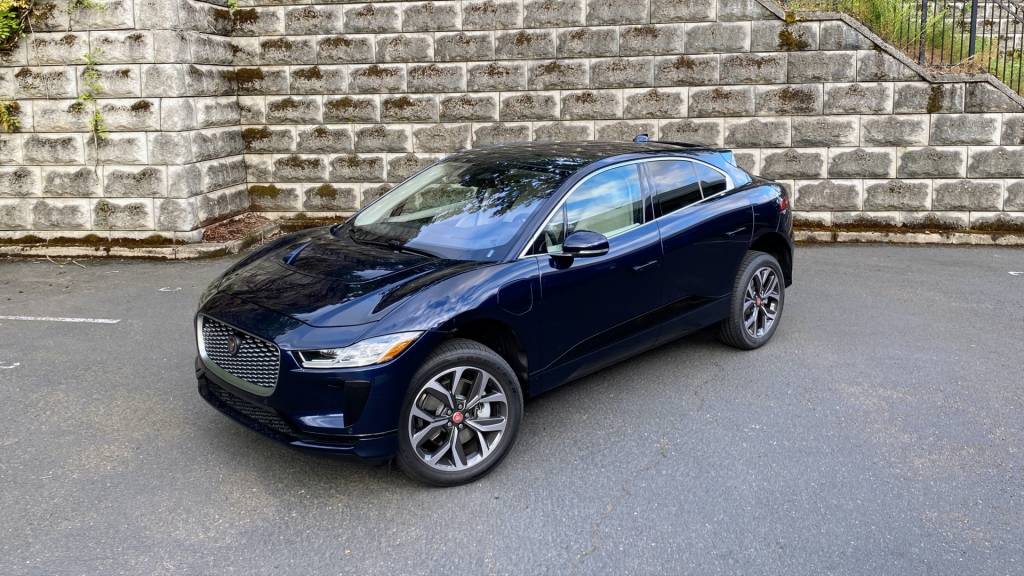
2022 Jaguar I-Pace
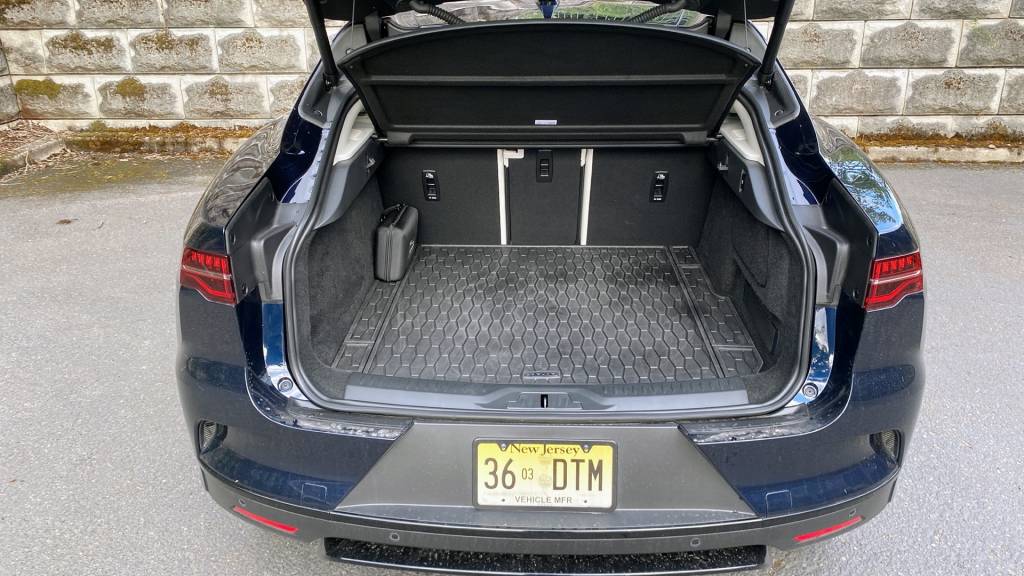
2022 Jaguar I-Pace
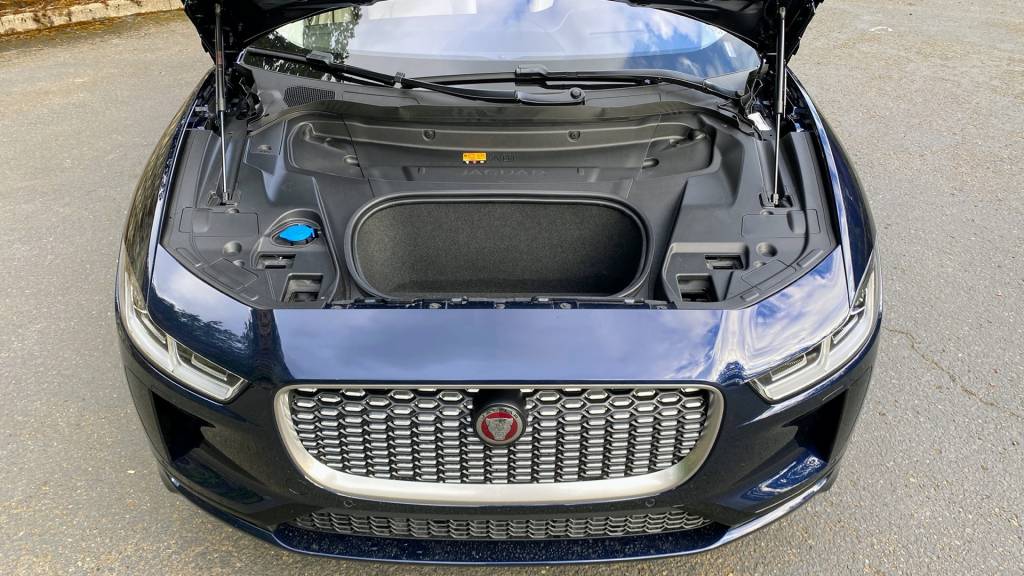
2022 Jaguar I-Pace
At the time I write this, the Jaguar dealership nearest me still has 2022 I-Paces in stock as well as 2023s. Priced out for 2023, that build would add up to $74,470. Since 2023 changes are limited to a few new colors and the addition of Alexa, with the onboard charger rating dropping from 11 kw previously to 9.6 kw for 2023, I’m extending those notes here, with some perspective.
With 20-inch wheels, range officially gets boosted to 246 miles for 2023, but it represents the retest of revised software that was in place in my 2022.
Anyone paying attention anymore to the first long-range premium-brand EV?
The I-Pace is a much better vehicle than it was when it arrived in the U.S. in October 2018. Leading up to its launch, Jaguar suggested it aimed to sell 15,000 I-Paces annually (globally), with the U.S. one of the largest markets for the model. Global sales of the model topped that in 2020 and 2021, but it’s never performed anywhere close to that here.
It’s truly hard to tell how serious Jaguar Land Rover remains about selling the I-Pace in the U.S. After a few years of sales in the (low) thousands, according to Automotive News it sold just 395 I-Paces in all of 2022 and 747 the year before.
It is for some intents and purposes a rare and exotic car.
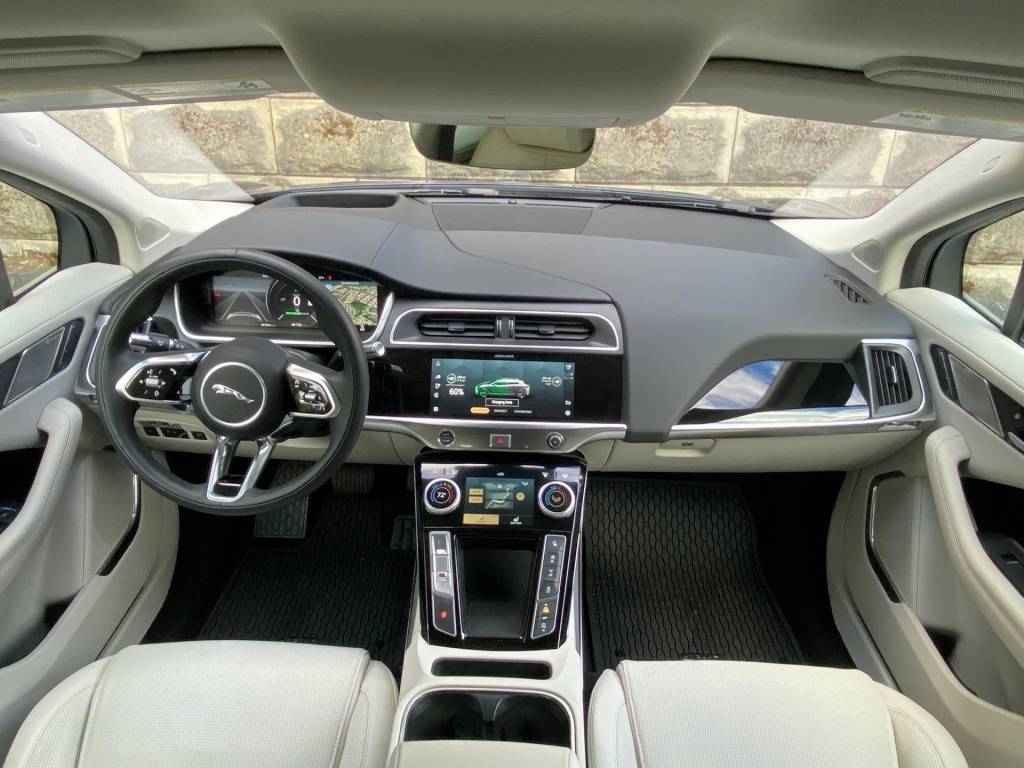
2022 Jaguar I-Pace
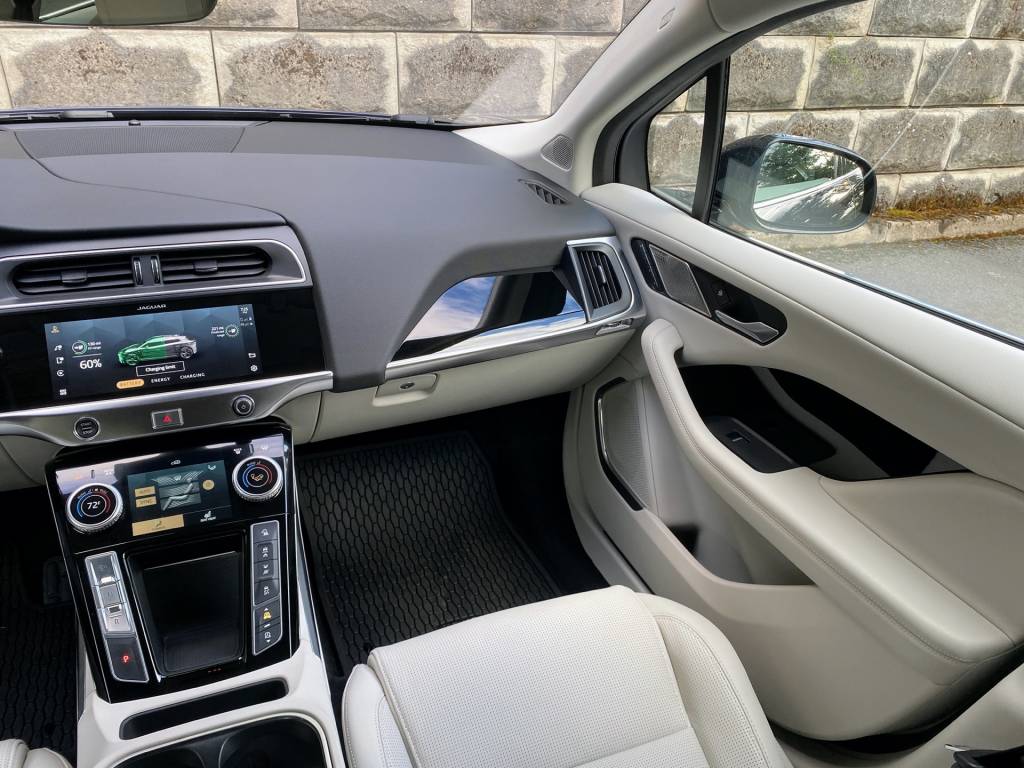
2022 Jaguar I-Pace
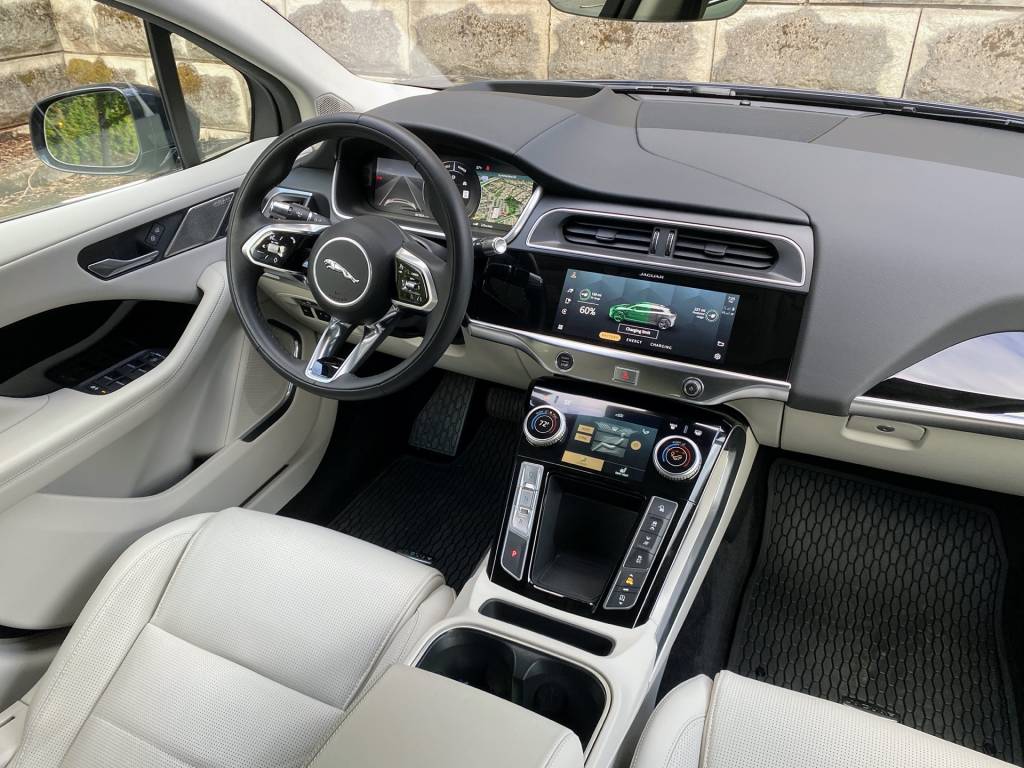
2022 Jaguar I-Pace
Climbing inside to take in the “new” I-Pace, I quickly found that software is one of the big success stories here. The 10.0-inch Pivi Pro infotainment system looks great, responds crisply, and scrolls smoothly—without any of the lag we noticed in the early models. It can do over-the-air updates, too.
It’s a pleasure to use. The climate screen and controls below the screen now also responded well. So did wireless CarPlay, which worked flawlessly and flowed between Apple-based functions and the native infotainment system more easily than the infotainment systems in the Hyundai Ioniq 5 and Kia EV6—which, by the way, need a cable for CarPlay or Android Auto, while the Jag didn’t.
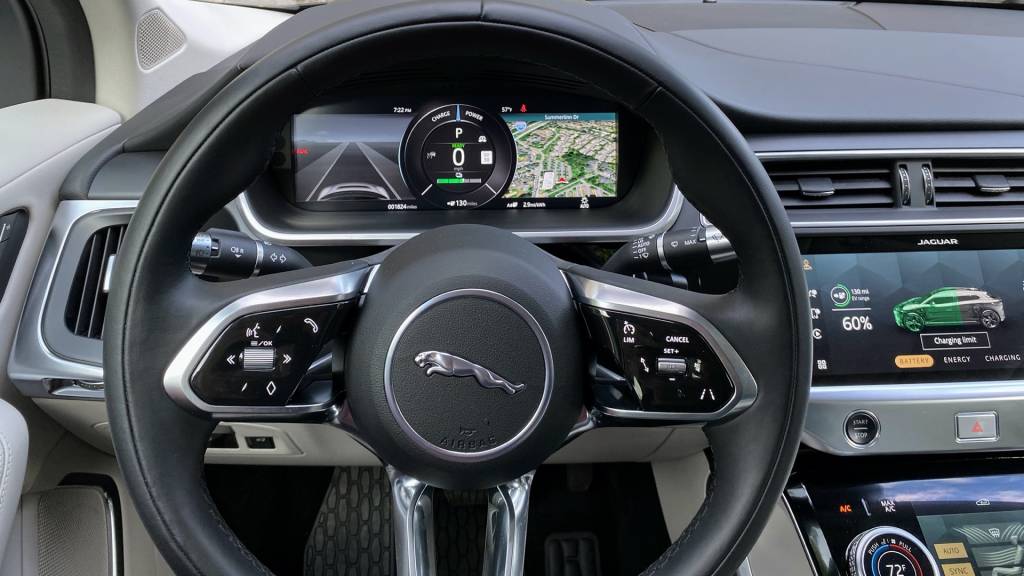
2022 Jaguar I-Pace
Jaguar fixed the I-Pace range issue on multiple fronts
Getting intimate with the I-Pace and pushing its range was a bit nerve-wracking, because of the way I had to quickly come up with backup plans in the past. In a week with the I-Pace, over one full charge and another partial one, the state-of-charge percentage (SOC %) was predictable and in line with the range estimate.
Simply put, I no longer have reservations about taking an I-Pace out on a road trip and trust I could get to the charging station. Note that the I-Pace fast-charges at up to 100 kw and takes about 40 minutes to get to 80%.
I drove the I-Pace 209 miles on that full charge, with conditions including 70+ mph freeway driving, some low-speed city driving, and country backroads, and temps in the 50s. At that point it displayed a 4% charge remaining, equating to an anticipated 13 miles. At the end of that time the trip computer indicated a 2.9 mile/kwh average.
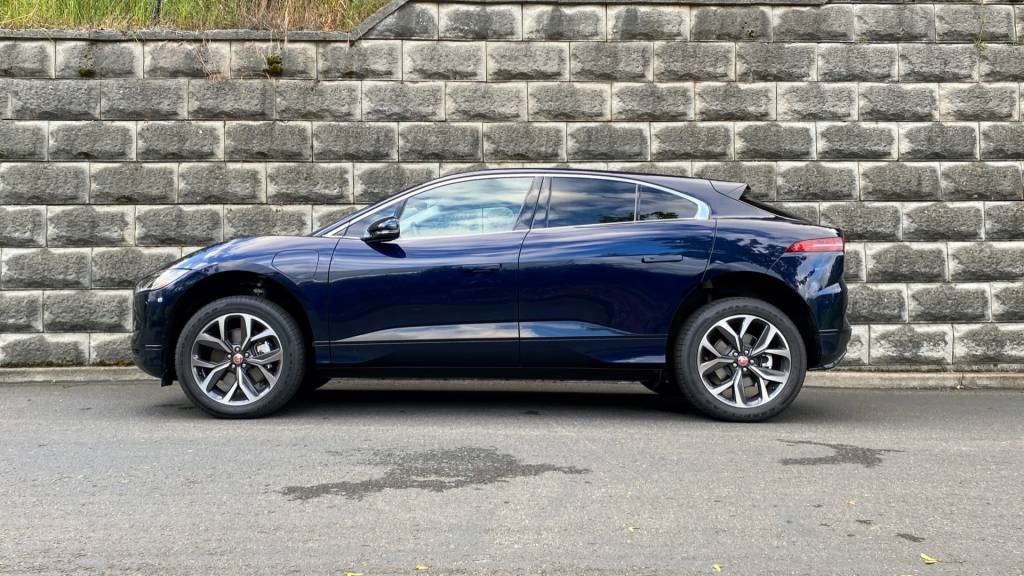
2022 Jaguar I-Pace

2022 Jaguar I-Pace
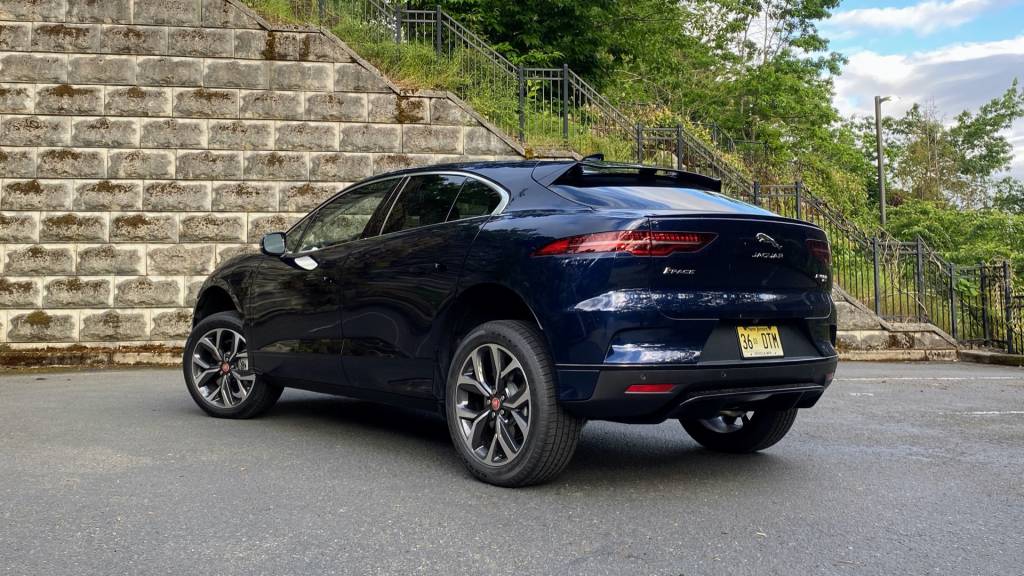
2022 Jaguar I-Pace
Well-rounded, and rare—even among Jaguars
Perhaps in a testament to how this whole segment of EVs has creeped upward in size, the I-Pace felt nimble and very compact compared to the likes of the Hyundai Ioniq 5, Kia EV6, and Volkswagen ID.4. Today there’s no premium EV that’s quite the I-Pace’s size (184 inches long), except for the Genesis GV60 and, if you count it premium, the Audi Q4.
The I-Pace stands out best, perhaps, versus the latest batch of crossover EVs, in its ride, handling, and general responsiveness. The ride isn’t punishingly firm, but it feels athletic, with really good, communicative steering. It has the kind of sharp body control that while not firm enough for the racetrack, is perfect for urban hotfoot types.
Regenerative braking comes in two settings, high and low, and after using the high setting for a short time I settled into low as my favorite; I suspect it aided efficiency to keep it there. You also have the option to toggle creep—ICE-like behavior that slowly moves ahead when you lift off the brake pedal. The Dynamic sound setting still feels gimmicky, though, and I selected Calm versus Normal or Dynamic.
Fundamentally, the I-Pace is a very well-designed vehicle, with comfortable seating for four (don’t think about a middle passenger in back), easy entry, a low, flat cargo floor, plenty of bins and storage, and a deep frunk that’s large enough for a couple of small daypacks. It’s relatively quiet inside, has good seats, and distinctive upholstery, and the clean instrument panel layout still looks contemporary. And the assembly quality of my car, made by Magna in Austria, was top-notch.
From the outside, the I-Pace is more softly styled versus some of the other edgy electric crossovers, and unless you’re a fan of the brand, the I-Pace is a far cry from the distinctive XJ sedans of a decade or more ago. Despite screaming-large Jaguar emblems in back and that distinctive grille, I still got asked in a parking lot what it was—with interest.



